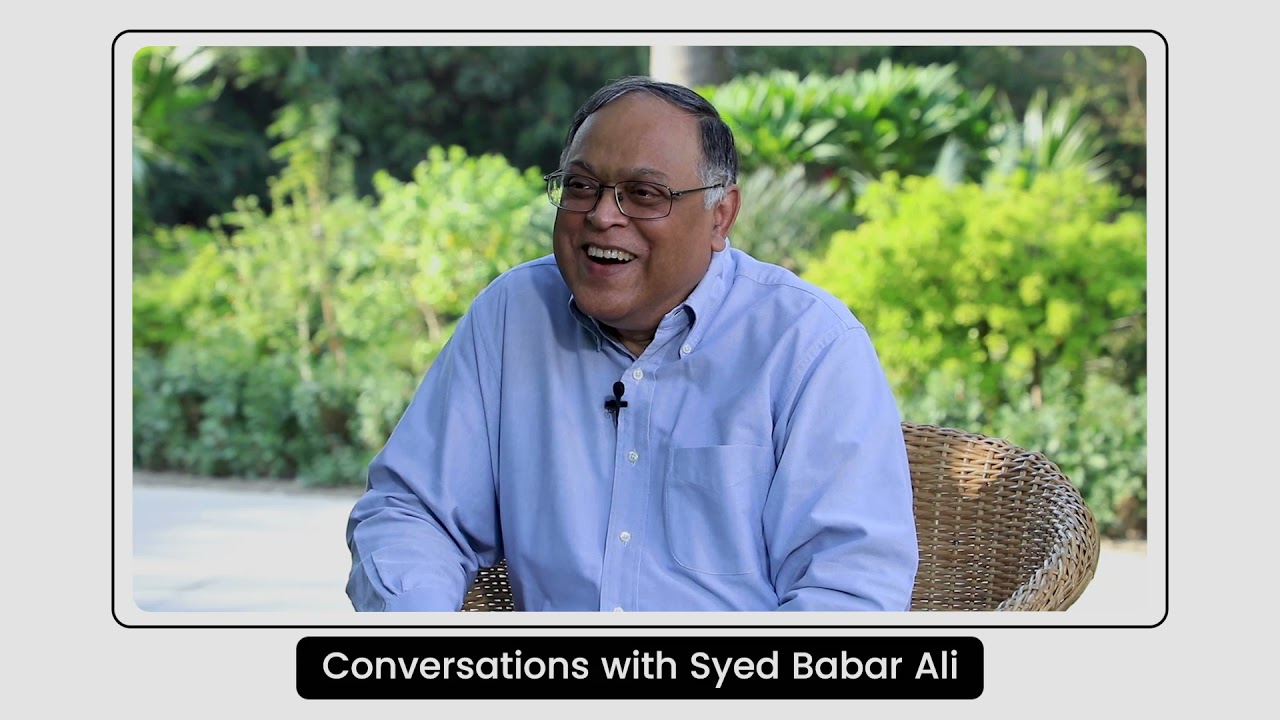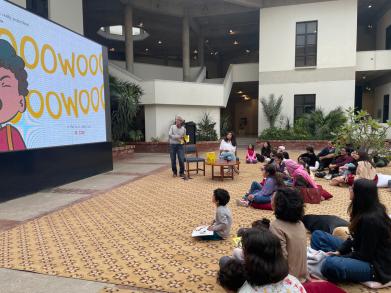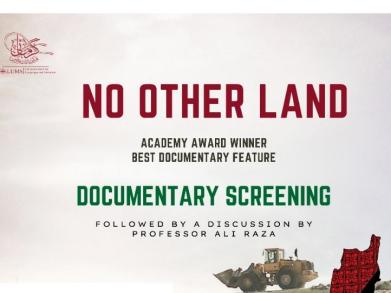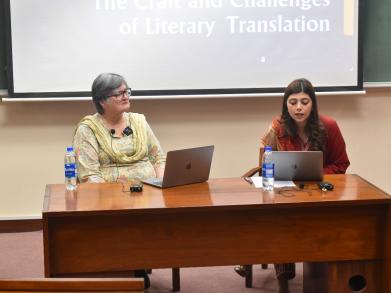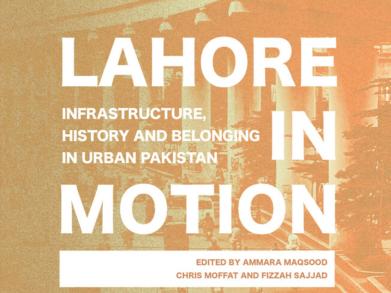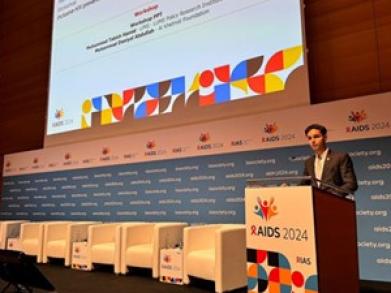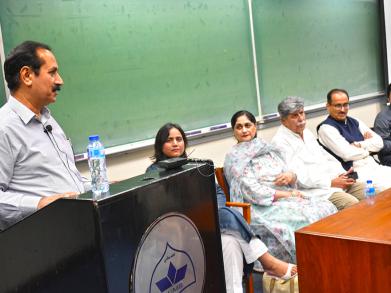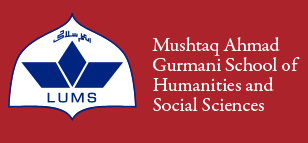
to
The Department of Humanities & Social Sciences is excited to host Dr. Farah Hasan Ali for an enlightening session on Wednesday, October 9, 2024, at 4:00 PM in the VC Faculty Lounge.
Join us for her talk titled “They Kill Us for Their Sport: Agamben’s Homo Sacer in Mithal Ghazi’s A Feminine Solo.” Don’t miss this opportunity to engage with critical themes and explore the intersections of philosophy and literature. All are welcome!
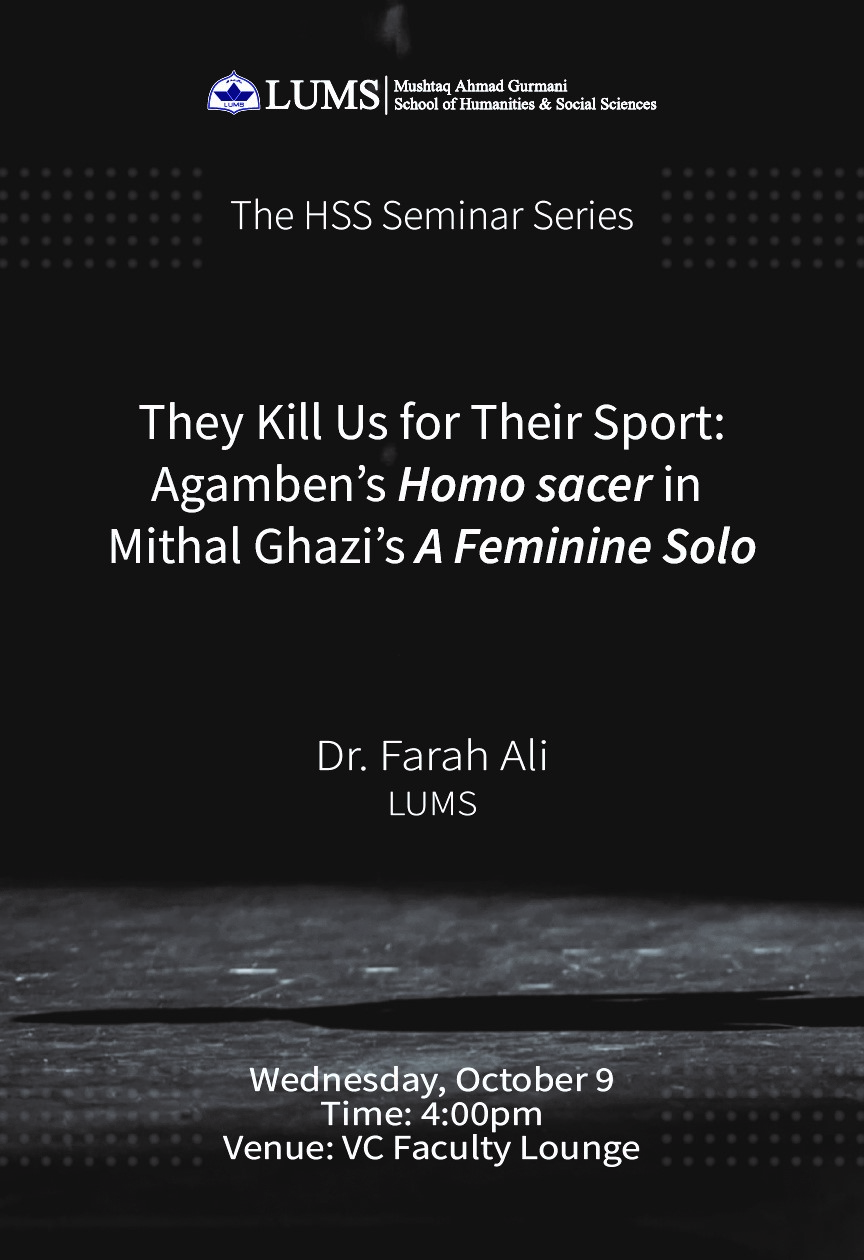
Abstract: This paper investigates the lives of two female characters as dramatized on stage in Mithal Ghazi’s play A Feminine Solo. Framing the analysis in Giorgio Agamben’s theory of homo sacer, the paper focuses on how women’s bodies are weaponized during times of violence in the former regime and post-2003 invasion of Iraq. The devaluation of the bodies of Noor and Hayat, the main characters, which is manifested in their dialogue, ritualized movements, and the setting of the stage, makes them examples of homo sacer: people whose lives and deaths can be disposed of with impunity.
Friction develops between the two women, highlighted by physical blocking and dynamic interplay on stage. Themes of repression, gender violence, and sectarian extremism permeate their dialogue. Despite their differing backgrounds, they share the experience of being devalued and vulnerable to violence and exploitation, both under the former regime and in the post-2003 era.
By framing the narrative through Giorgio Agamben’s theory of homo sacer, this paper will closely examine the devaluation of women’s lives highlighted by the playwright. This devaluation provides a framework for exploring themes of gender violence and extremism. By focusing on homo sacer, the paper will analyze the structural injustices and power dynamics shaping the experiences of Iraqi women during times of war. Ghazi’s work prompts audiences to confront the harsh realities faced by marginalized individuals in conflict-affected contexts.
Biography: Dr Farah Ali, Assistant professor of English at Lahore University of Management Sciences (LUMS). Previously, A Post-Doctoral Fellow at the University of Hull (UK). My area of interest is Post-War British Theatre in which I focus on identity politics, power, oppression, and gender issues. My thesis was based on the identity predicament in selected works of Harold Pinter which was then published as book with Routledge titled: ‘Eroding the Language of Freedom: Identity Predicament in Selected Works of Harold Pinter’ 2017. Currently working on a second manuscript in which I discuss the theme of the female figure and diaspora fiction in Europe.

